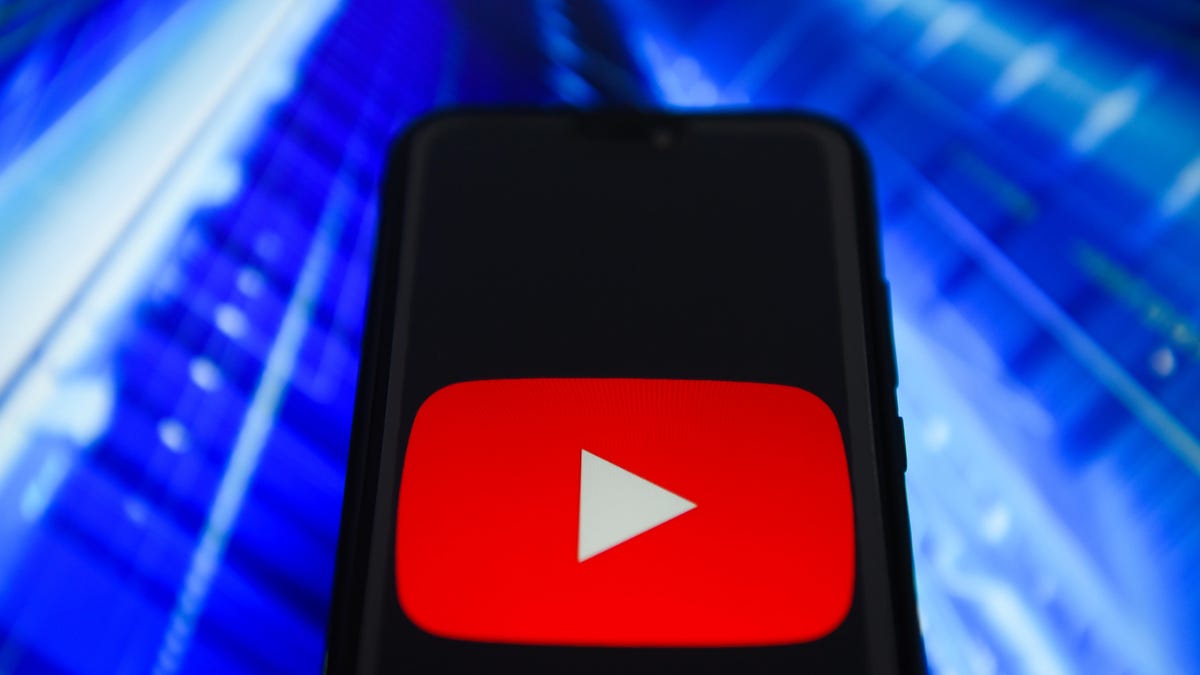YouTube to ban supremacist and hoax videos in tougher hate speech policy
That includes videos that deny events like the Holocaust or Sandy Hook shooting.

YouTube is axing videos that push extremist views or deny events like the Holocaust.
YouTube on Wednesday said it's removing videos that push extremist views like white supremacy or deny events like the Holocaust or Sandy Hook shooting. The new policy is an attempt to crack down on hate speech on the Google-owned video service.
The new rules prohibit any video "alleging that a group is superior in order to justify discrimination, segregation or exclusion based on qualities like age, gender, race, caste, religion, sexual orientation or veteran status."
YouTube didn't specifically say which channels or videos it's removing. The company has drawn criticism for how it enforces its policies and its decision-making process when it comes to leaving up videos that some deem hateful.
The update follows a controversy Tuesday evening, when YouTube refused to take down the channel of a prominent conservative personality named Stephen Crowder for using homophobic slurs against journalist Carlos Maza, a writer and video host at Vox. Maza, who is gay, created a supercut of Crowder calling him a "lispy sprite" and "little queer."
YouTube said Crowder's videos didn't violate the site's rules. "Our teams spent the last few days conducting an in-depth review of the videos flagged to us, and while we found language that was clearly hurtful, the videos as posted don't violate our policies," the company said in a series of tweets Tuesday night. "Opinions can be deeply offensive, but if they don't violate our policies, they'll remain on our site."
(2/4) Our teams spent the last few days conducting an in-depth review of the videos flagged to us, and while we found language that was clearly hurtful, the videos as posted don’t violate our policies. We’ve included more info below to explain this decision:
— TeamYouTube (@TeamYouTube) June 4, 2019
YouTube also said Wednesday it would remove channels that "brush up" against its hate speech rules -- but don't necessarily break them -- from its YouTube Partner Program, which lets creators run ads on their channel and use other monetization features. For other "borderline" content, YouTube said it would reduce the reach of the video and surround it by more authoritative content, like putting a video on the topic from a trusted news source in the "Watch next" panel.
YouTube hasn't banned Crowder's channel, but later Wednesday said it would suspend its monetization.
"We came to this decision because a pattern of egregious actions has harmed the broader community and is against our YouTube Partner Program policies," the company tweeted. However, the company said in a follow-up tweet that Crowder would be able to monetize his channel again if he addressed certain issues, including removing a link from the video selling his T-shirts and merchandise.
YouTube didn't immediately respond to a request for comment about what else would need to be fixed.
The new hate speech policy also comes as platforms like YouTube, Facebook and Twitter face intense scrutiny for their ability to police the content on their platforms. Facebook in March announced it was banning white nationalist and separatist content. But it has also faced blowback for its decision to leave up a video of House Speaker Nancy Pelosi that had been doctored to make her appear drunk. (YouTube decided the video was inappropriate and removed it from its service.)
YouTube also said it has partnered with lawmakers and other organizations to help combat the spread of extremism on its service. On Wednesday, one of those partners, the Anti-Defamation League, applauded the new policy by YouTube but called on the company to do more.
"We were glad to share our expertise on this and look forward to continuing to provide input," Jonathan Greenblatt, the ADL's CEO and national director, said in a statement. "While this is an important step forward, this move alone is insufficient and must be followed by many more changes from YouTube and other tech companies to adequately counter the scourge of online hate and extremism."
Originally published June 5, 9:54 a.m. PT.
Update, 12:03 p.m. PT: Adds news that YouTube suspended monetization of Crowder's channel; 1 p.m. PT and 2:06 p.m. PT: Adds YouTube's followup statements about Crowder's demonetization.

